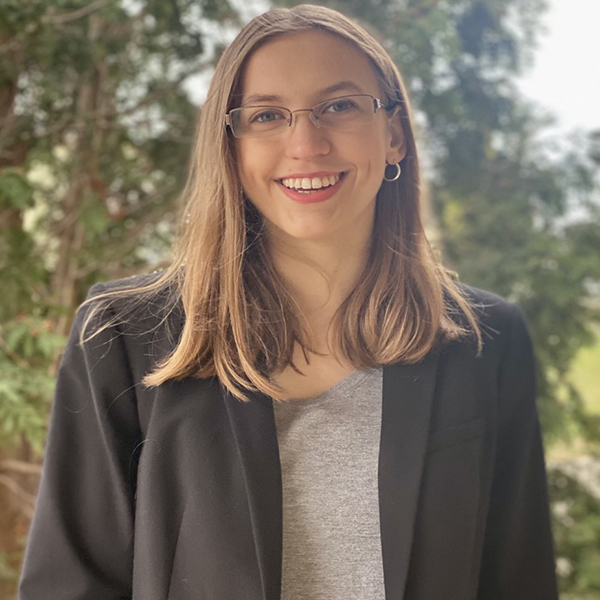
Setting the Stage for Representation: Women Candidates and Moderators’ Impact on the Prevalence of Women’s Issues in Presidential Primary Debates

Name: Hannah Groetsch
Major: Political Science: U.S. National Politics
Minor: English
Advisors: Dr. Angela Bos, Dr. Avram Muñoz (second reader)
This Independent Study explores how women’s increased presence in presidential primary debates impacts the extent to which women’s issues are discussed in debates. Prior research on political representation and critical mass theory indicates that women politicians can turn their identity as women (descriptive representation) into action that benefits their women constituents (substantive representation) by adding women’s voices and experiences into the political conversation. I capitalize on the 2020 Democratic primary being the first where multiple women presidential candidates ran against each other, allowing me to see whether more women participating also led to women’s issues being better represented in the debate. I hypothesize that women’s issues, especially manifest women’s issues like abortion and childcare that are most salient to women, will be more prevalent in debates when there are more women on stage, that women candidates’ presence will result in men candidates talking about women’s issues more often, and that women moderators will discuss manifest women’s issues more than men moderators. Using a content analysis method on Democratic primary debate transcripts from 2000-2020, I find partial support for my hypotheses. Women’s issues do not increase overall when more women on stage, but manifest women’s issues in particular do increase, in some cases over 150%. Additionally, women moderators’ questions include three times more words related to manifest women’s issues than men moderators. These results show that women presidential candidates can turn their presence into substantive representation and that it matters that women candidates and moderators are present on the debate stage.
Posted in Comments Enabled, Independent Study, Symposium 2022 on April 26, 2022.
12 responses to “Setting the Stage for Representation: Women Candidates and Moderators’ Impact on the Prevalence of Women’s Issues in Presidential Primary Debates”
Related Posts
Related Areas of Study
Political Science
The study of power, with concentrations in U.S. politics, international relations, political theory and comparative politics.
Major MinorEnglish
Students benefit from the small classes and access to faculty members in the small private liberal arts setting at Wooster.
Major Minor


What a phenomenal project, Hannah, on such an important topic. I love how your project comes so clearly from your interests and coursework at Wooster. I know I will definitely never watch a political debate in the same way after learning through your project! Great work. Best, Prof. Bos
Great job, Hannah!
So proud of your work and love that you are putting your passions into action. You are already making the world a better place and you are teaching me how to be a better woman. So lucky to get to be your mom!
O so sharp. O so accurate. You can run for Congress in three years!
Really interesting work, Hannah!
Thanks Professor Bos! I couldn’t have done it without your awesome advising!
Go Hannah!
Hannah: Amazing job, great project! I learned something, too — I appreciate the distinction between manifest v. latent women’s issues. The Biden v. Sanders results were very interesting!
Amazing work, Hannah! It’s been such a treat watching this project develop over this past year. Can’t wait to see how this will impact our future debate bingo cards 🙂
This is amazing, Hannah! Can’t wait to see you do some more girlBos political research in the future 🙂
Thank you everyone for your comments! Your support made this project possible and so much fun!
A great project, love the NVivo work! Congrats Hannah!
Such an interesting topic and a great presentation! Woo Hoo Hannah!